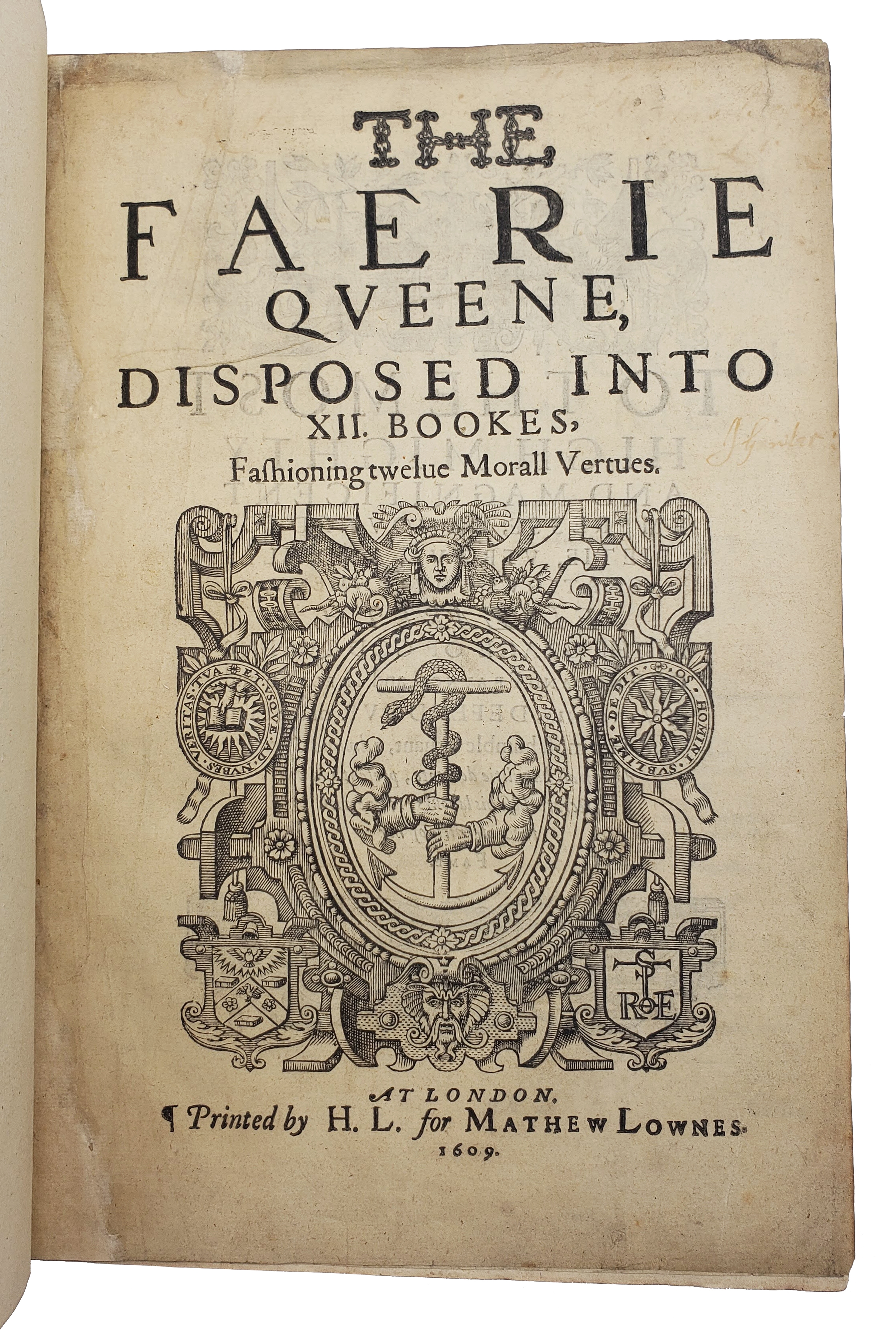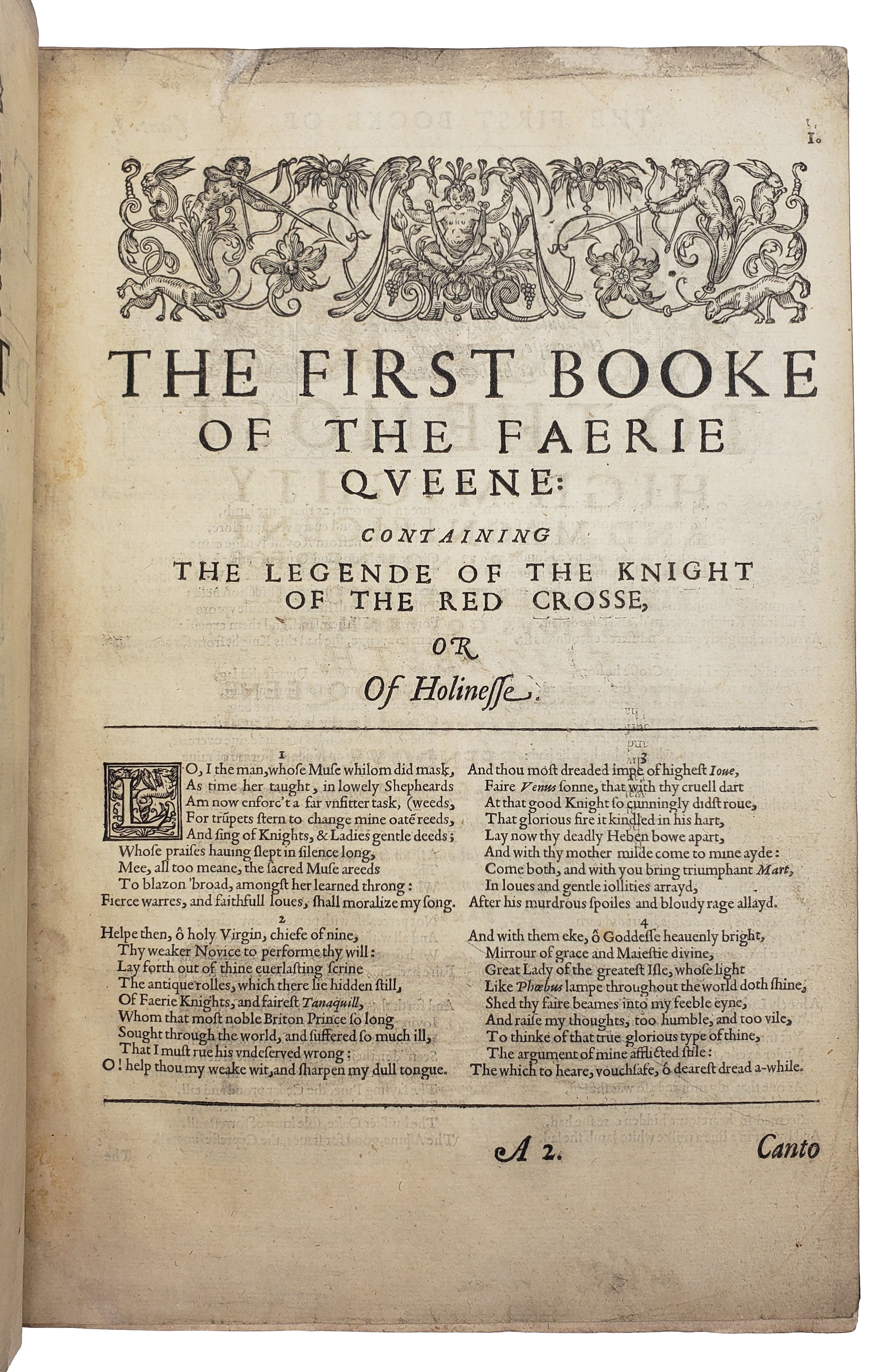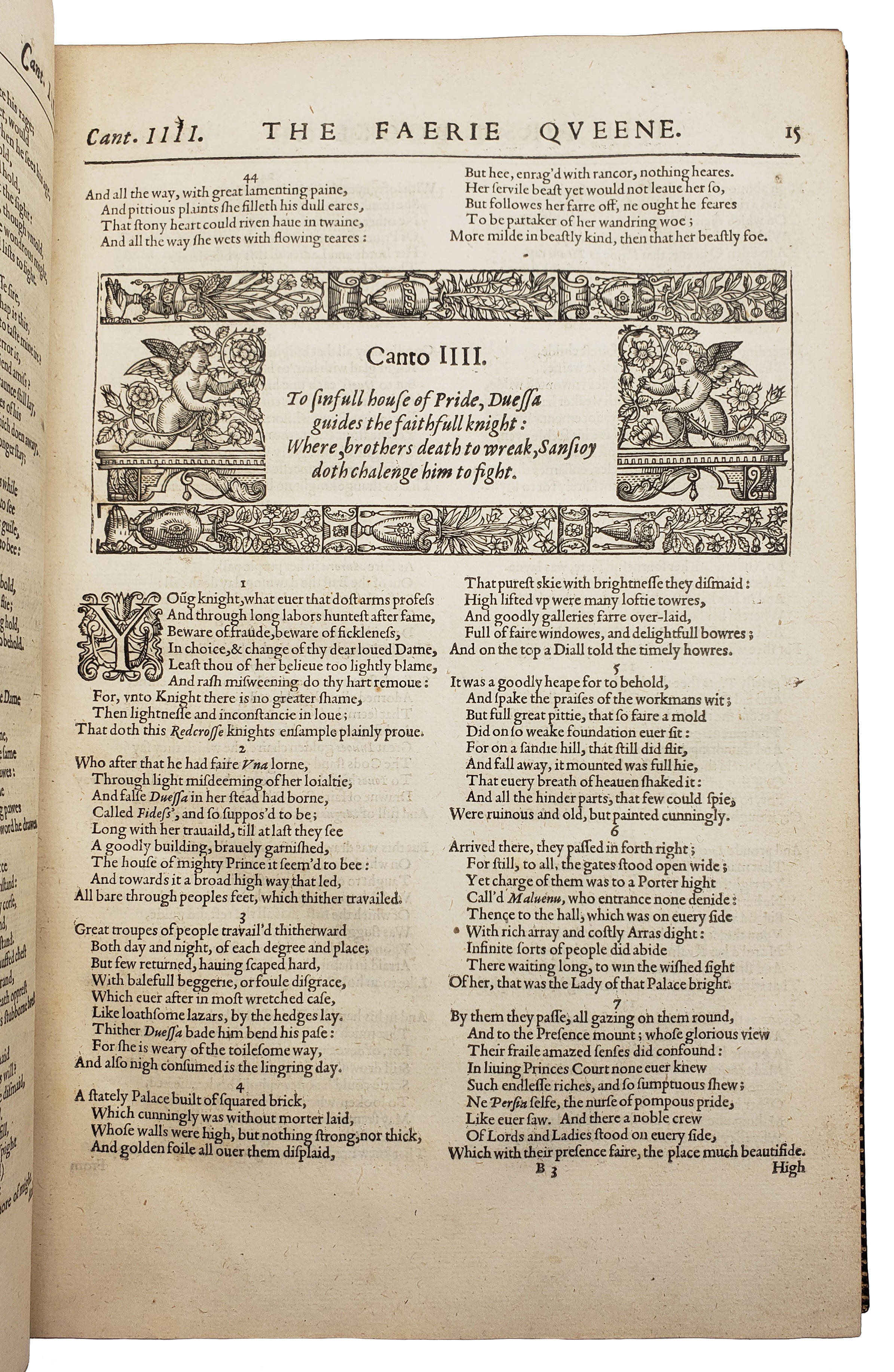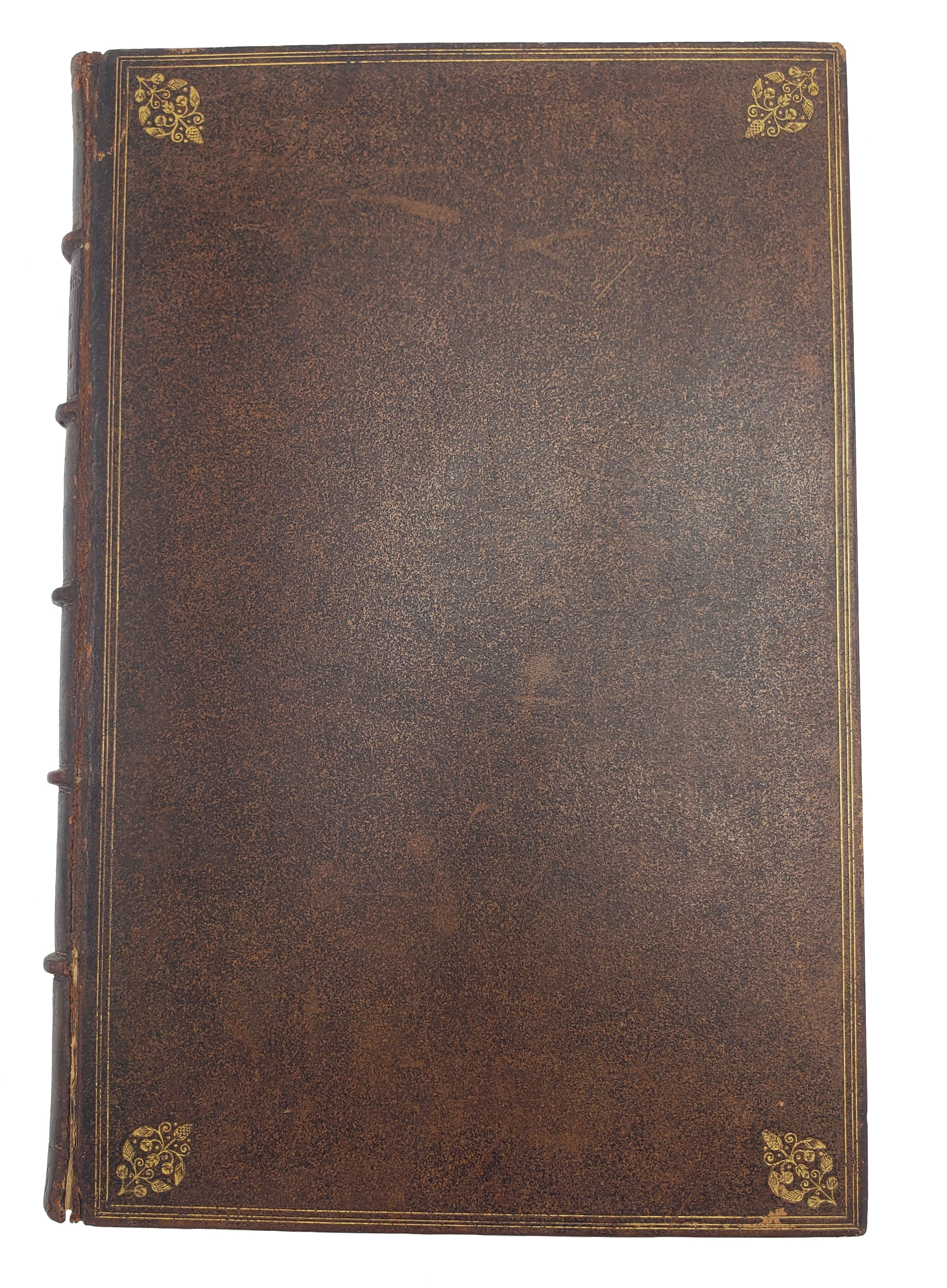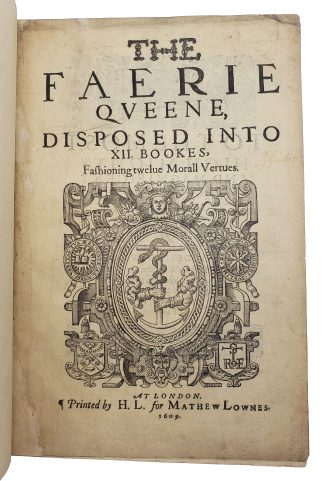SPENSER, Edmund.
FIRST FOLIO EDITION
The Faerie Queene
London, Printed by H.L. for Mathew Lownes, 1609£8,500.00
FIRST FOLIO EDITION. Small folio. 2 parts in 1, separate titles, pp. [2], 363, [1], lacking blank Ii4. Roman letter, double column. Woodcut printer’s device to title and last verso, all Canto titles within decorated woodcut border, decorated initials and ornaments. Title and last dusty, a little repair to upper blank margin and blank gutter of title, first, and last leaf, slight browning, occasional minor, mainly marginal spot or stain, title and A2 slightly trimmed at foot. A good, overall clean copy in C19 sprinkled calf, triple gilt ruled, gilt-staped fleurons to corners, raised bands, gilt-stamped fleurons and gilt-lettered morocco label to spine. Bookplate of Kenneth Rapoport to front pastedown, faint contemporary autograph to title.
A fine copy of the first folio edition, with minor variants, of the ‘Faerie Queen’, the pre-eminent achievement of Edmund Spenser. Spenser was the first great poet in England since Chaucer, the most learned apart from Milton, the most influential ‘poet’s poet’ as described by Lamb, and acknowledged by Shakespeare as the master of ‘music and sweet poetry’. His influence on subsequent literature cannot be exaggerated: Milton found him a ‘sure guide’ both as a thinker and a poet; Dr Johnson pointed out the derivation of ‘The Pilgrims Progress’ from the ‘Faerie Queen’; Dryden called the author his ‘Master in English’.
His epic poem ‘The Faerie Queene’, featuring the so-called ‘Spenserian stanza’ for the first time, was a major influence in the writings of Coleridge, Wordsworth, Lamb and many others. First published in two parts (1590, 1596), it includes here the ‘Cantos of Mutabilitie’, considered as an unfinished Book VII. It is an allegorical poem following the adventures of several knights, each representing a virtue (e.g., Britomart for chastity, Sir Guyon for temperance, the Redcrosse Knight for holiness), seeking to encourage gentlemen-readers towards virtue. It is also a not-so-veiled celebration, and occasionally critique, of Elizabeth I. The character of Braggadocio – personified boasting – had already entered the English language as ‘a general term for any blustering blowhard’ as early as 1594, just four years after his appearance in print (Merriam-Webster).
‘Spenser was known to his contemporaries as “the prince of poets”, as great in English as Virgil in Latin. He left behind him masterful essays in every genre of poetry, from pastoral and elegy to epithalamion and epic. […] Milton was later to claim Spenser as ‘a better teacher than Aquinas’, and generations of readers, students, and scholars have admired him for his subtle use of language, his unbounded imagination, his immense classical and religious learning, his keen understanding of moral and political philosophy, and his unerring ability to synthesize and, ultimately, to delight’ (Cambridge University, ‘The Edmund Spenser biography’).
USTC 3004072; ESTC S1728; Pforzheimer 971; STC 23083.

